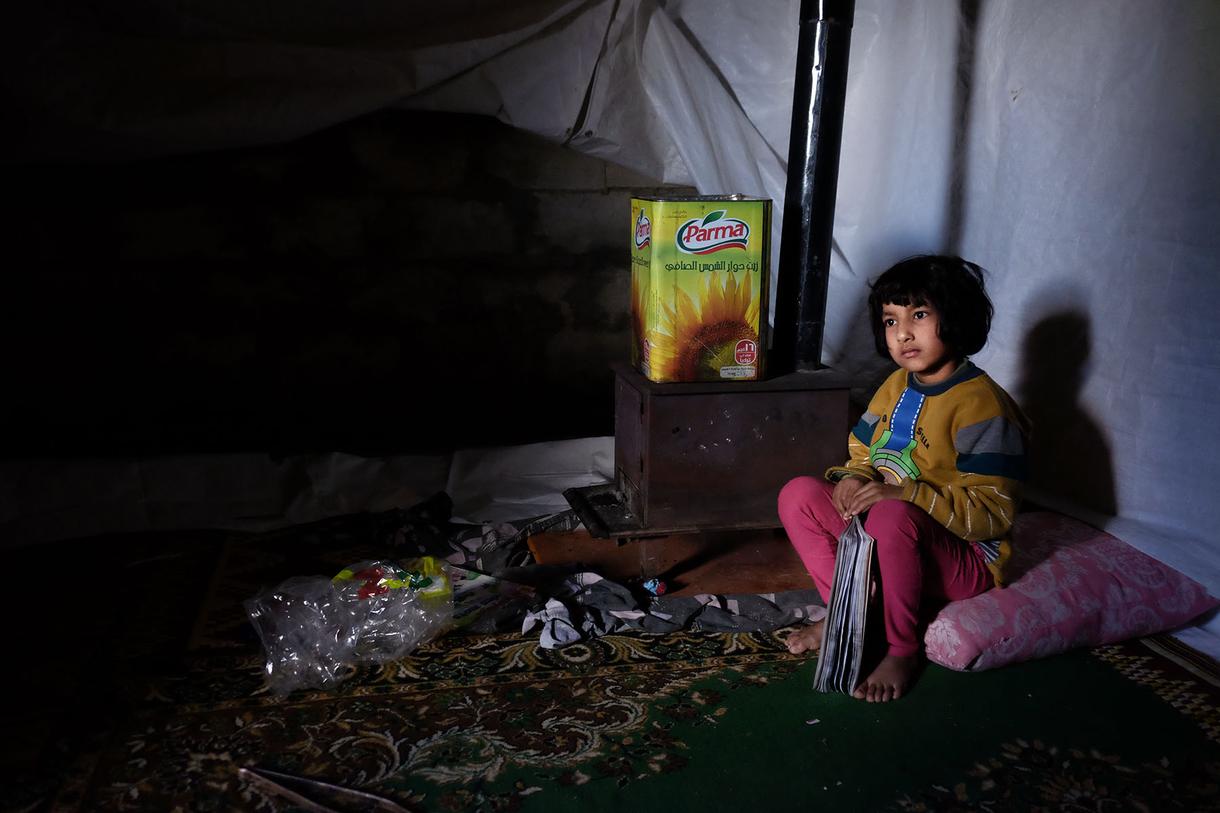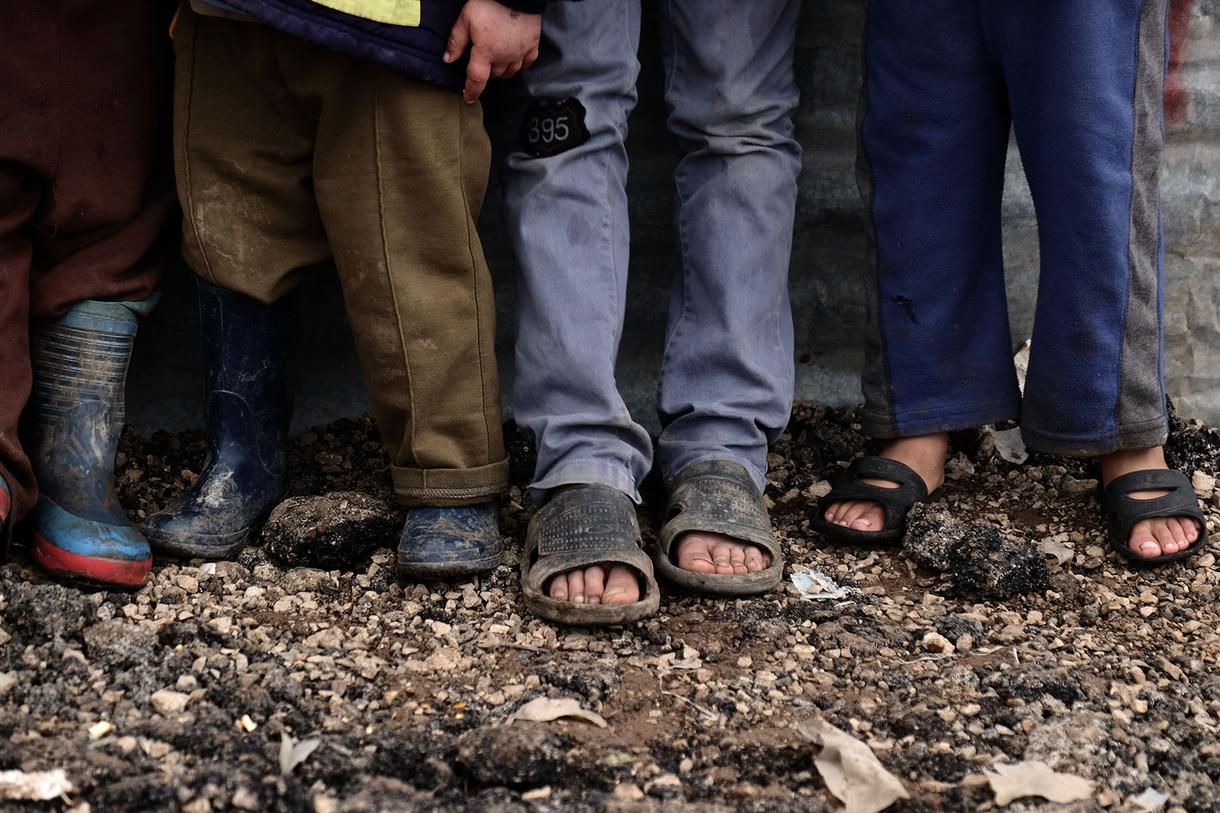Oxfam and its partners work to reach refugee families hit hard by torrents of rain and snow.
For countless Syrian refugees enduring another winter in tents and temporary shelters, a massive storm making its way across the Middle East has brought new misery with destructive winds and torrents of rain and snow.
"Our children are all sick. The cold is unbearable, and we have no means to keep them warm," said one refugee.
In coastal areas of north Lebanon, heavy rain and wind have destroyed the tents of many refugees and in some areas of Lebanon’s Bekaa valley, the snow is now about three feet deep. The storm has knocked out power to parts of the country and blocked roads leading to rural areas where families live together in tents in informal settlements, stranding them and leaving many refugees in urgent need of food and water.

“Refugees who don’t have proper access to clean water or can’t store drinking water will be in severe difficulties if we don’t reach them in the next two days,” Laurian Gauny, Oxfam’s program manager in the valley, told Reuters on Wednesday.
In Bekaa, Oxfam’s partner, SAWA, has been working with a UN refugee agency to distribute plastic sheeting to protect tents. Oxfam is also distributing hygiene kits that include diapers and sanitary pads. And in the days ahead, our team will be working to empty septic tanks in some settlements along with digging trenches in coastal communities to ensure that tents there don’t get flooded with storm water.
“The danger will not lift when the snow stops falling,” said Camilla Jelbart Mosse, Oxfam’s Syria crisis campaign manager. “Informal settlements are likely to be severely flooded and in the Zataari refugee camp in Jordan we’re concerned that storm water may cause septic tanks to overflow, which could lead to big health risks.”
In Jordan, an Oxfam team is working to ensure that the trucking of water continues so people will have a safe supply for drinking.
“Oxfam and our partners will be working hard to reach people with support,” said Jelbart Mosse.
The challenge of seeking safety

The conflict in Syria has dragged on for nearly four years, forcing about 3.3 million Syrians, more than half of whom are under the age of 18, to flee their country and seek safety in neighboring nations.
But now, that safety has become more difficult to find as neighboring countries, struggling under the strain of the crisis, increasingly restrict their borders. In the end of December, Lebanon—where one in every four people is a Syrian refugee—announced it was imposing new entry regulations for Syrians, requiring them to apply for one of six types of visas in order to come into the country. Extreme humanitarian cases will also be considered, though the criteria for those is unclear.
"The new restrictions on entry for Syrians into Lebanon are part of a worrying, wider trend reflecting quite simply fewer and fewer opportunities for Syrians to escape conflict,” said on Oxfam spokesman. "Neighboring countries, particularly Lebanon and Jordan, have welcomed huge numbers of Syrians fleeing conflict to date in an unprecedented crisis. These countries have a clear obligation to ensure that refugees can continue to seek safety, but they are facing enormous strain. The increased restrictions should also be seen as a collective failure of the international community as a whole,as neighboring countries continue to receive insufficient support from other governments.”
Oxfam has helped more than 1.5 million people across Syria, Lebanon, and Jordan with lifesaving essentials. But the needs of families remain enormous.
